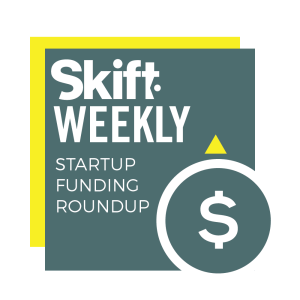2C2P Raises $52 Million for Payments Tech: Travel Startup Funding This Week
Skift Take

Travel Startup Funding This Week
Each week we round up travel startups that have recently received or announced funding. Please email Travel Tech Reporter Justin Dawes at jd@skift.com if you have funding news.This week, travel startups announced more than $101 million in funding.
>>2C2P, a payments-processing service, has raised $52 million in Series E funding.
The World Bank's International Finance Corporation, Cento Ventures, and Arbor Ventures participated. The startup has now raised $70 million since its founding in Bangkok in 2003.
2C2P isn't a travel startup. But travel companies currently make up the most significant slice of its clients for digital payment services. The startup assists regional airlines, online travel companies, and other e-commerce players in accepting and processing cross-border currency payments from customers in Southeast Asia.
>>Decibel, a provider of digital experience intelligence solutions, has raised $17 million in Series B funding.
Draper Esprit led the round in the London-based company.
Decibel isn't a travel startup. But many travel brands, such as British Airways and TUI Group, use its software to study how easy it is for consumers to use their websites and mobile apps.
>>Leavy, a short-term rental startup, has raised $14 million in seed funding.
Prime Ventures led the round. Angel investor Dominique Vidal, a partner at Index Ventures, participated.
Unlike most other short-term rental marketplaces, Leavy guarantees that property owners will make money during the time they put their urban apartment up for hosting. The promise holds, regardless of whether Leavy finds a guest to book the place.
More than 65,000 millennials, about 60 percent of whom are women, have become members since the Paris-based service launched nearly two years ago, said CEO and co-founder Aziza Chaouachi. The company serves markets in Paris, Amsterdam, London, Rome, Madrid, and Lisbon, and it has plans to open a U.S. office within the next couple of months, she said.
The company said it has advanced software skill at matching renters with hosts and maximizing revenue based on supply and demand.
>>Htrip, a hotel tech company, has raised about $14 million (100 million yuan) in an extension to its Series A funding.
Shenzhen Capital Group led the round. 36kr first reported the funding.
In April, Htrip announced a Series A round of funding of about $8.5 million, led by Guangdong Jianrong Accommodation Rental Service. It previously raised about $1 million in seed funding.
The Guangzhou-based company provides Chinese hotels with operations software, such as revenue management systems and on-demand video and smart TVs for guest rooms. Htrip said its systems are in use in more than 3,000 hotels that together operate 266,000 rooms.
>>Hometime, a short-term rental management startup, has raised $4 million ($6.7 million Australian) in Series A funding.
NAB Ventures and AS1 Capital led the round. In May, the startup raised about $4 million, too.
Like other property management companies, Hometime helps bring professional management to short-term rentals in Australia and New Zealand.
Skift Cheat Sheet:
We define a startup as a company formed to test and build a repeatable and scalable business model. Few companies meet that definition. The rare ones that do often attract venture capital. Their funding rounds come in waves.
Seed capital is money used to start a business, often led by angel investors and friends or family.
Series A financing is typically drawn from venture capitalists. The round aims to help a startup's founders make sure that their product is something that customers truly want to buy.
Series B financing is mainly about venture capitalist firms helping a company grow faster. These fundraising rounds can assist in recruiting skilled workers and developing cost-effective marketing.
Series C financing is ordinarily about helping a company expand, such as through acquisitions. In addition to VCs, hedge funds, investment banks, and private equity firms often participate.
Series D, E and beyond These mainly mature businesses and the funding round may help a company prepare to go public or be acquired. A variety of types of private investors might participate.
Check out Skift's Top Travel Startups to Watch in 2019, here.





